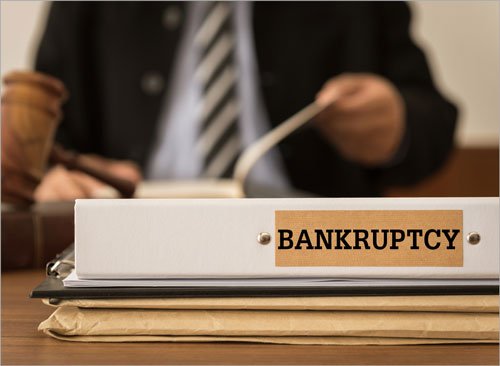|
Wisconsin is one of the few states that allow debtors to choose between their own state's exemptions and the federal exemptions when filing for bankruptcy. Exemptions provide a specified level of protection from liquidation for various types of assets. Debtors must also choose between chapter 7 and chapter 13 bankruptcy, each of which provides forgiveness of some non-exempt debt. However, this choice will also be determined by the amount of property that needs protection from liquidation as well as the debtor's ability to repay creditors. What Are the Primary Wisconsin State Exemptions? Wisconsin state law allows doubling of exemption amounts for married applicants filing jointly. Major benefits include:
What Are the Primary Federal Bankruptcy Exemptions? Federal law also permits doubling of exemptions for married couples filing jointly for bankruptcy. Major benefits of the federal system include:
What Are the Benefits of Using the Wisconsin State Exemptions? Homeowners with a large amount of equity in their homes benefit most from the state exemptions. They provide protection for up to $75,000 in equity for single filers as opposed to only $24,925 in federal exemptions (homestead and wildcard combined), These totals are doubled for married joint filers. Recipients of personal injury recoveries will also benefit from state exemptions, which protect up to $50,000 in recoveries, as opposed to federal exemptions that only provide up to $23,675 exemption protection. What Are the Benefits of Using the Federal Exemptions? Debtors with a large amount of personal property benefit more from the federal system. Single filers can protect $27,325 in personal property (including jewelry) while married couples can protect $43,500 with the jewelry exemption included. By comparison, state exemptions provide only $17,000 for single filers and $29,000 for married joint filers. What Are the Benefits of Chapter 7 Bankruptcy? Filing for chapter 7 bankruptcy relieves the debtor of all debt after the bankruptcy is discharged. However, the debtor must surrender all non-exempt property to a trustee of the court for repayment of creditors. Debtors with no non-exempt assets will receive a clean slate after bankruptcy with no debt and all exempt property intact. Debtors must qualify for Chapter 7 bankruptcy. Those whose household income falls below their state's median household income are automatically qualified. For example, the median income for Wisconsin (as of November 1, 2017) is $48,521 for a single occupant, $63,739 for a two occupant household, and more for additional occupants. Debtors with income above the state median must undergo a means test which determines their disposable income (after household expenses). Debtors with little or no disposable income can file for chapter 7 bankruptcy. What Are the Benefits of Chapter 13 Bankruptcy? Chapter 13 bankruptcy protects non-exempt assets from seizure and liquidation through a debt repayment plan based on disposable household income. Debtors can catch up on late payments on mortgage and car loans while continuing to make regular payments. Unsecured debts such as those for credit cards and personal loans are repaid according to income, usually at a fraction of the total debt. After a payment period of three to five years, the remaining unsecured debt is discharged. Bankruptcy is difficult but definitely easier with guidance, and The Michelson Law Office will be there for you from the beginning to the end of the entire process.
0 Comments
Your comment will be posted after it is approved.
Leave a Reply. |
|
The Michelson Law Offices |
Multiple offices throughout the Chicago Metropolitan Area
|
|
Regus North LaSalle Center
203 N. LaSalle Street, Suite 2100 Chicago, IL 60601 Phone Number: 312-767-0670 |
New York Offices
Phone No. 646-585-8100
Phone No. 646-585-8100
|
Brooklyn
175 Pearl Street Dumbo 1st, 2nd and 3rd Floor Dumbo, NY 11201 |
Manhattan
14 Wall Street 20th Floor New York, NY 10005 |
Website managed by Wisconsin LawyersEdge, LLC
Site powered by Digital BusinessEdge
Site powered by Digital BusinessEdge

